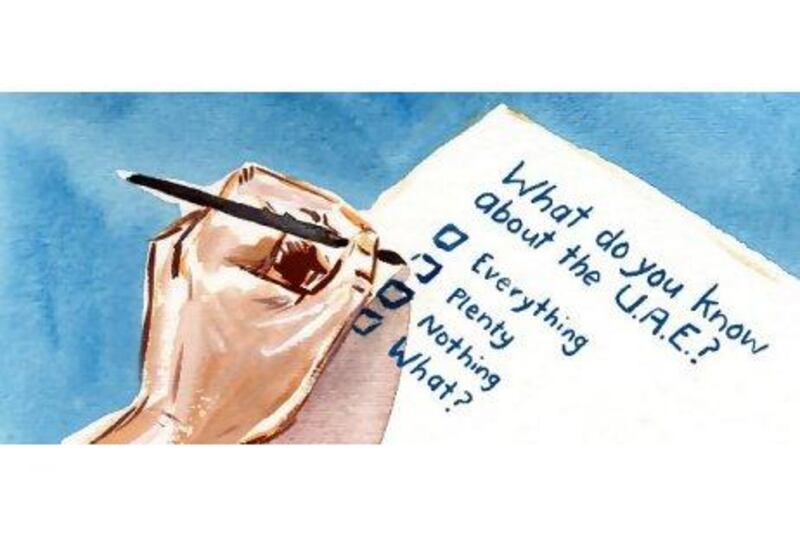In a country that is only 40 years old, the word history can be defined in many ways. History can be found in this nation's English-language archives and in the libraries of western and Arabic observers. It is present in the nation's classrooms and on our archaeological sites. Finally, it is also to be found in this country's rich storytelling tradition.
Tribal history is known to most Emiratis. Enter a majlis and you will hear the stories of the "aweleen" as we call them - meaning those who lived earlier.
Some of us might not be as good at remembering numbers and dates, but we know, with all certainty, what happened when our grandfathers went hunting with Sheikh Zayed, and we know what occurred in the "days of Shakhbut". And we also all know about Sheikha Salama Bint Butti, the mother of our former leaders Zayed and Shakhbut.
It was with some interest then, and a degree of concern, that I read of the YouGov survey earlier this week. The survey found that Emiratis didn't know much about their own history and while its findings must be accurate, it only seems to tell half a story and, in my mind, it also raises more questions than it answers.
Without a doubt, our country is new, our history is living and there is definitely a need for school curriculums to keep pace with the rapid changes that are happening here and now.
We should organise more field trips for our children so they can see and experience the country they were born in. Let them travel to Dalma, let them journey to Liwa. Let them go to Sir Bani Yas island and see the Christian church that predates the days of Islam. But most of all let them visit our elders and sit and listen.
That said, there is already a definite movement towards the acquisition of knowledge about this nation's history, a truth that appears to contradict the survey's findings.
Consider for a moment the documentary film Home of History: Future's Nation, a work produced by Anasy Media Production and narrated by Dr Walid Yasin and originally released to coincide with last year's Spirit of the Union celebrations. The film, which is available on DVD, traces the region's ancient origins and begins with a stark message: "Warning: This film contains facts that may be considered shocking for those who believe that the history of the UAE land is only a few hundred years old."
Consider too these historical texts: Dr Jayanti Maitra's Qasr Al Hosn: The History of the Rulers of Abu Dhabi, which can be found in both Arabic and English and charts the emirate's voyage from 1793 to 1966 and Mohammed Al Fahim's classic From Rags to Riches: A Story of Abu Dhabi, something of a required text for residents of this city. There are many more besides these examples. And consider some of our portfolio of cultural institutions and exhibitions: the Emirati section at Manarat Al Saadiyat's latest exhibition, the Sheikh Zayed Museum in Al Bateen, the forthcoming and eagerly anticipated national museum on Saadiyat Island, and our university library in Al Ain (established in 1978, it now stocks more than 30,000 titles of historical importance).
All these examples provide clear signs of a desire for engagement with the past.
Being born in a country that is so young, and witnessing the days of Sheikh Zayed, is to understand that history is not some faraway construct. It lives with us every day and, in a nation that is always looking forward, we must make sure we do not lose sight of the past.
It is, of course, easy sometimes for my generation to be overwhelmed by the present. But we are all learning - about 1971, what happened before it, and what has happened since. We will continue to do so, no matter what that survey might suggest about our collective memories.





